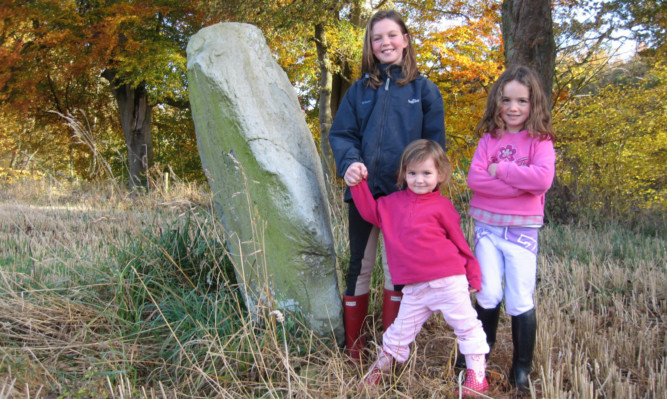The site of a bloody Scottish battle, which launched the country’s love affair with the humble thistle, has gone on the market with a near £1million price tag.
Denmarkfield Farm, north of Perth, is the location of the 10th century Battle of Luncarty where the Scots claimed victory over invading Danish hordes.
The conflict is also significant as it led to the thistle being adopted as Scotland’s national emblem.
Legend had it that the barefooted Danes landed on the Tay at a bridge south of Stanley and prepared a sneaky night-time onslaught on slumbering Scots at a camp at Luncarty.
However, one of the advancing Norsemen gave the game away when he trod on a thistle as he jumped off the bridge.
His scream of pain alerted the Scots, who immediately swung into action.
Now selling agent Strutt and Parker is offering a chance to snap up this important slice of Scottish history. The five-bedroom country house at Denmarkfield Farm, along with 91 acres of land, is being sold for offers over £995,000.
A standing stone on the edge of the site marks the location where a Danish king, who led his army’s charge, was killed and buried.
James Butler of Strutt and Parker said: “The historical note does make it just that little bit more interesting than many other small farms.”
He added: “This is an outstanding house with very good arable land, which is in a position which makes it possible to commute to both Edinburgh and Glasgow.”
The garden includes a summer house and greenhouse and there is also a garage big enough for three cars.
Denmarkfield is available as a whole or in four lots ranging in price from £10,000 to £475,000.
The Battle of Luncarty is believed to have taken place in 980AD, although some historians argue it was later. There were celebrations to mark the 1,000th anniversary of the battle four times between 1971 and 1991.
Scottish troops were rallied by a peasant farmer named Hay who helped them hold off the approaching Danes.
The King of Scotland, Kenneth III, was delighted with his efforts and knighted him. He then cast off his peregrine falcon and said: “All lands that my falcon shall cover will be yours.”
Fortunately for Mr Hay, a heron chose that moment to pass by and the falcon gave chase, pursuing it for several miles to a point south of Glencarse.
